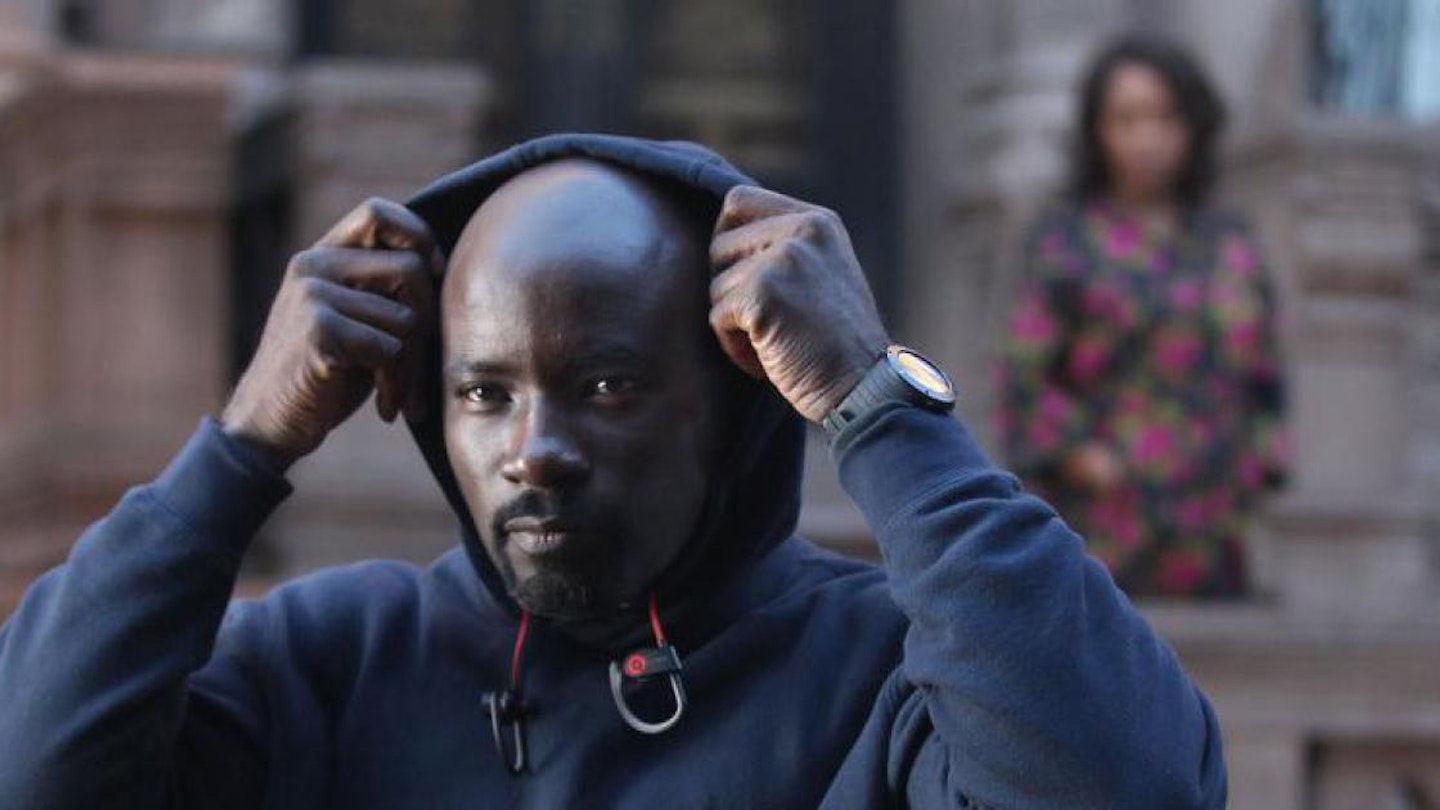If Netflix is any indication, Marvel's television efforts are rapidly playing catch up to its feature division in the sense of getting a diversity of characters out there. At this point there are two seasons of Daredevil, one of Jessica Jones, the debut of Luke Cage coming on 30 September, with Iron Fist, The Punisher and the crossover event series The Defenders on the horizon.
Mike Colter was introduced as Luke Cage, a reluctant hero, on Jessica Jones. The character's origin is that he's a prison inmate who, through a sabotaged experiment, finds himself endowed with super strength and unbreakable skin. He becomes a fugitive attempting to rebuild his life in Harlem and must soon confront his past and fight a battle for the heart of his city.
Empire sat down with Colter and showrunner Cheo Hodari Coker to discuss the series and the factors that make Luke Cage a hero.
What are your individual takes on Luke Cage?
Mike Colter: A guy that has been thrust into a place that he doesn't really want to be. He's a guy who has been endowed with abilities, as they say. To him it's not a positive; at least he doesn't see it that way. He's reluctant and he is a kind of guy that doesn't strive for the spotlight. He's a humble guy who doesn't want any part of this, but ultimately it's something that he is going to have to deal with. It's perfect for me, because I don't really like the spotlight either, so it kind of feels like a glove.
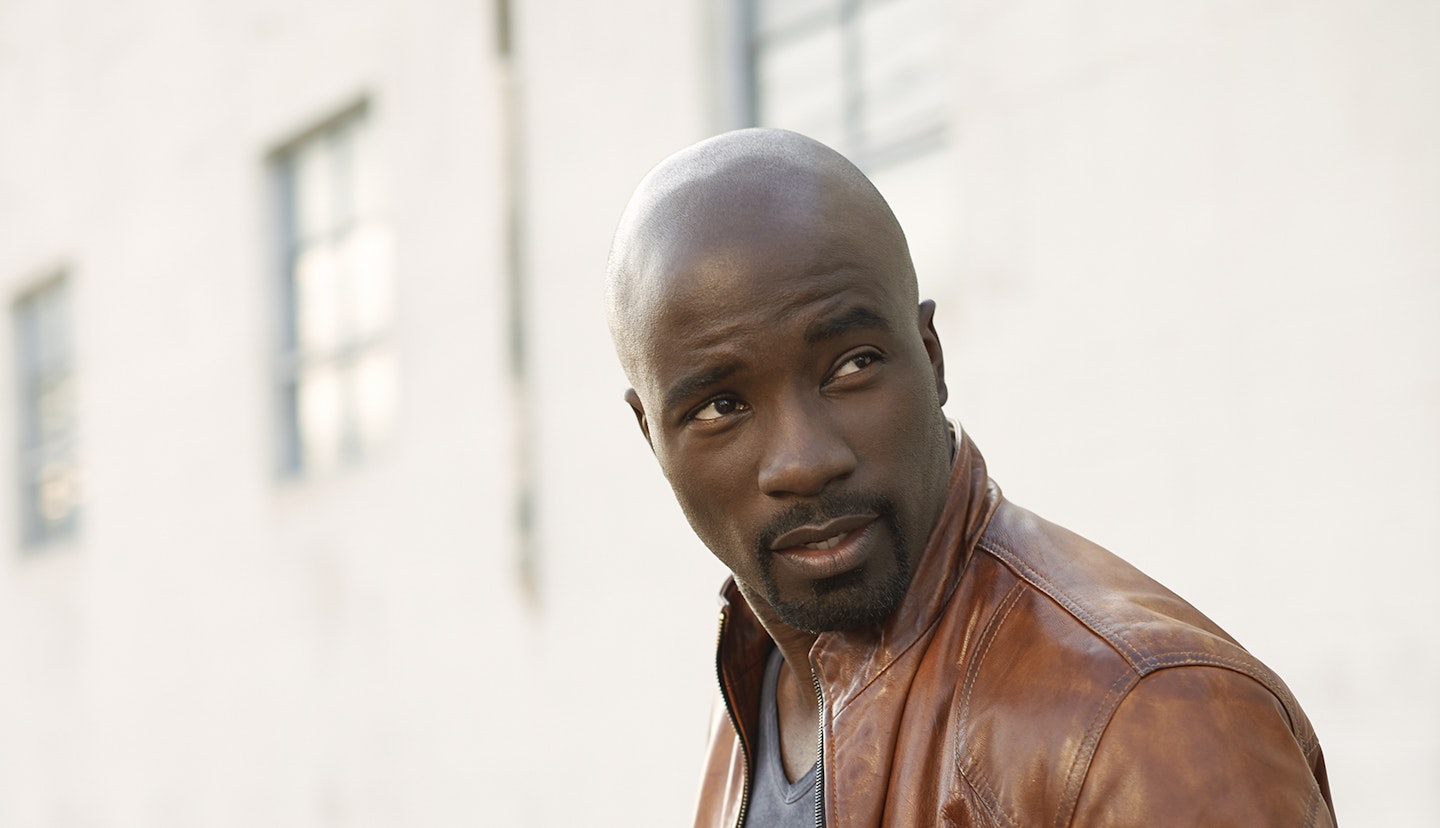
Cheo Hodari Coker: He's a complicated man who no one understands but his woman. His woman in this case, Reva, would be dead. He never wanted this route, didn't ask for these powers. Now that he has them, he doesn't necessarily want the spotlight and the heat that comes with being different. What's interesting is that things could have been different had he prevented certain things from happening, but once there are consequences for not doing what he should have done in the first place, he feels a responsibility to come out of the shadows and be a hero. So part of what the first season is about is how one attempts to accept the mantle of being a hero, the sacrifices that come from that and how one gets to the point where you finally accept who you are.
Is there a challenge in adapting this when there are a lot of people ready to compare it to the comic?
Coker: Not really. Daredevil is haunted by Frank Miller's run, which is so insurmountable that the only thing you can really do is match it, which that show has. Brian Michael Bendis' run on Alias, in terms of what he did with Jessica Jones in that comic and the level of maturity of its deep themes, transfers perfectly into the series. With Luke Cage, there was Power Man; I read his comics, I remember growing up that the tone was never really that deep or that heavy. Basically every single issue there was Cottonmouth and Big Banana and all these different people. At first I thought that was a disadvantage, but it turned out to be a great advantage for our show, because there has been thirty or forty years where people really haven't explored some of these characters. So we could reinterpret and do it in such a way that definitely respected the spirit of the comics, but at the same time the show could exist in its own space. What I think happens is that because they are different, people will go back to the comics and experience that richness in one way, and they will also give our show its own sense of whatever it is.
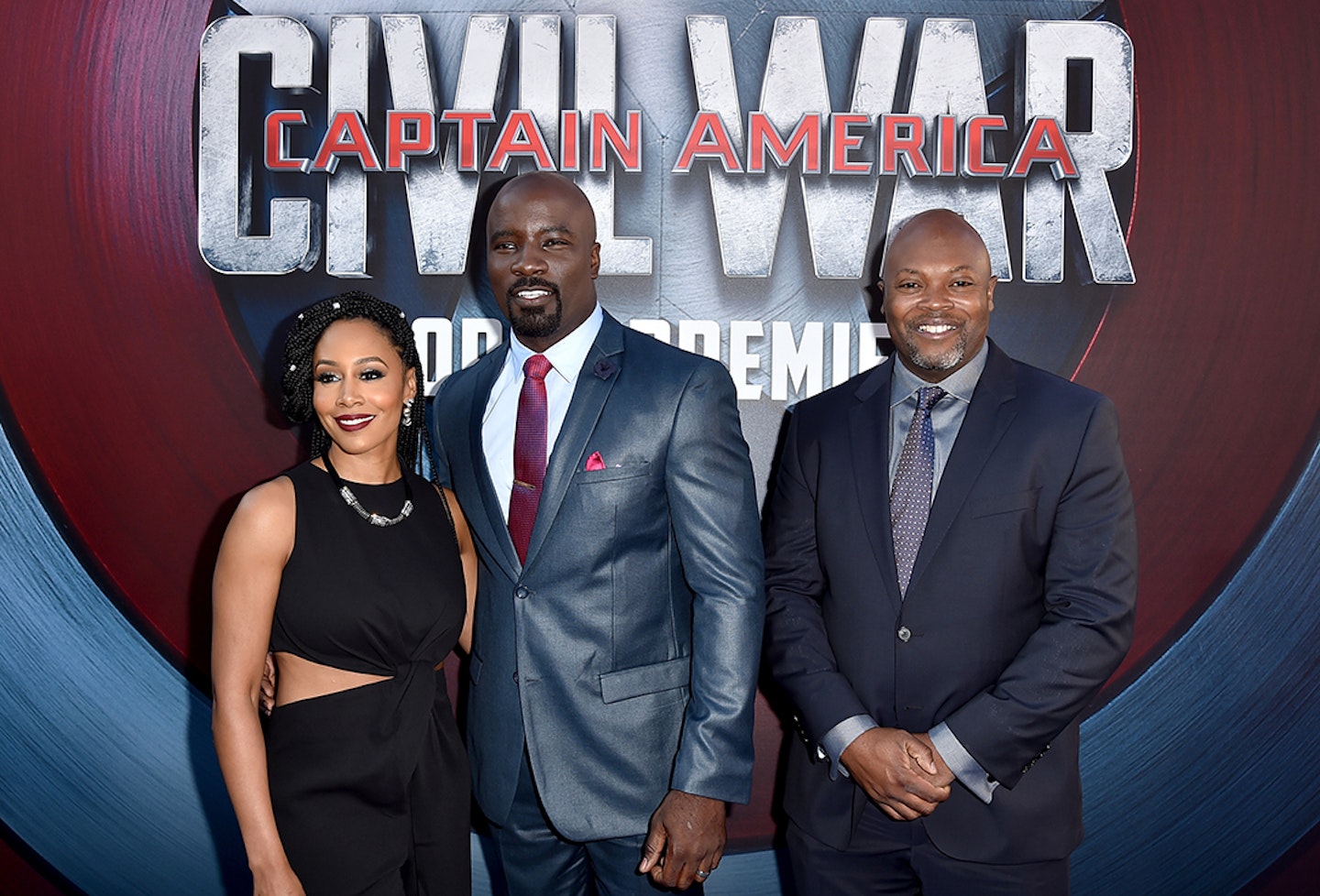
There's a great moment that serves as a nod to the comic when Luke is wearing what looks like a metal headband, cuffs and a yellow shirt. Was it fun to provide a tribute to the comic book look?
Coker: I am assuming that you are referring to the origin episode. Charles Murray wrote that episode. He actually executive produced the show with me. He co-runs the show Star on Fox, and not only is Charles a brilliant writer and director, he's like a geek bar none. That was the episode where he said, “Cheo, I am writing that episode!" Charles is a big dude and I’m, like, "Yep, that episode is all yours” [laughs]. For the life of me I couldn’t figure out how you could incorporate the “tiara” in an organic way, but he did.
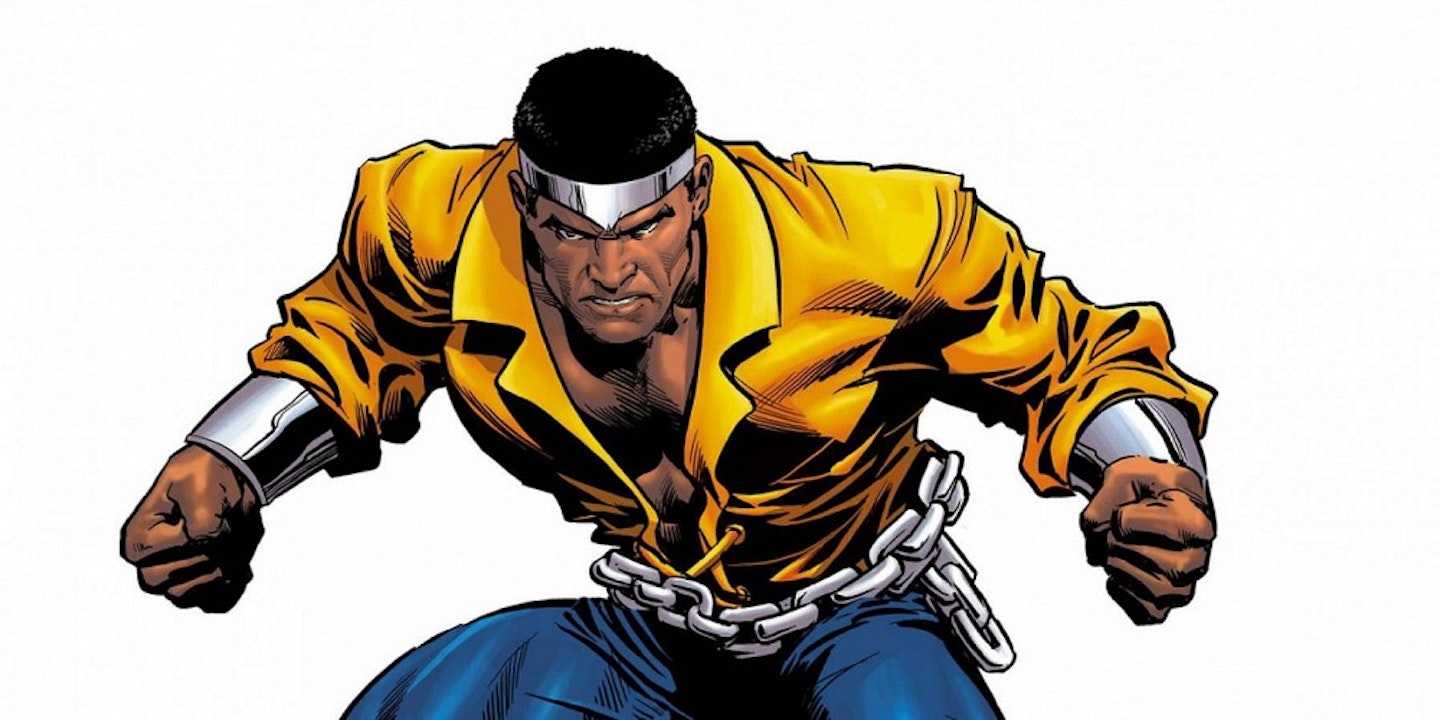
Colter: You see it coming and I am not a geek in the sense of I didn't grow up reading Luke Cage. But I have been playing him for a while now, so I kind of absorbed other people’s energy. I can only imagine what it must feel like and watch it happen slowly, because you are going "Oh my God ... wait a minute, that’s the ... I can see it's going to happen!” It's like a slow orgasm of some sort; a very slow orgasm that builds. Tantric.
How challenging was it to try to make it work?
Colter: Honestly, I felt that was the longest episode of the series. I am not kidding you. With the costume, and the makeup, and the setups, and the flashback sequence… it just took a long time to film that. I felt like once we got past that episode it was, like, “Man, I think I can finish the series now.” That episode almost felt like a series by itself. It was like a twelve or thirteen day shoot. We did the reveal at one in the morning in Queens somewhere in somebody’s backyard. You find yourself doing the scene and you’re cold, you’re barefoot, and you’re suddenly, like, “Wait a minute, are we finally going to do this? Are we going to do it?" It was a great experience; it was one of my favorite episodes to do.
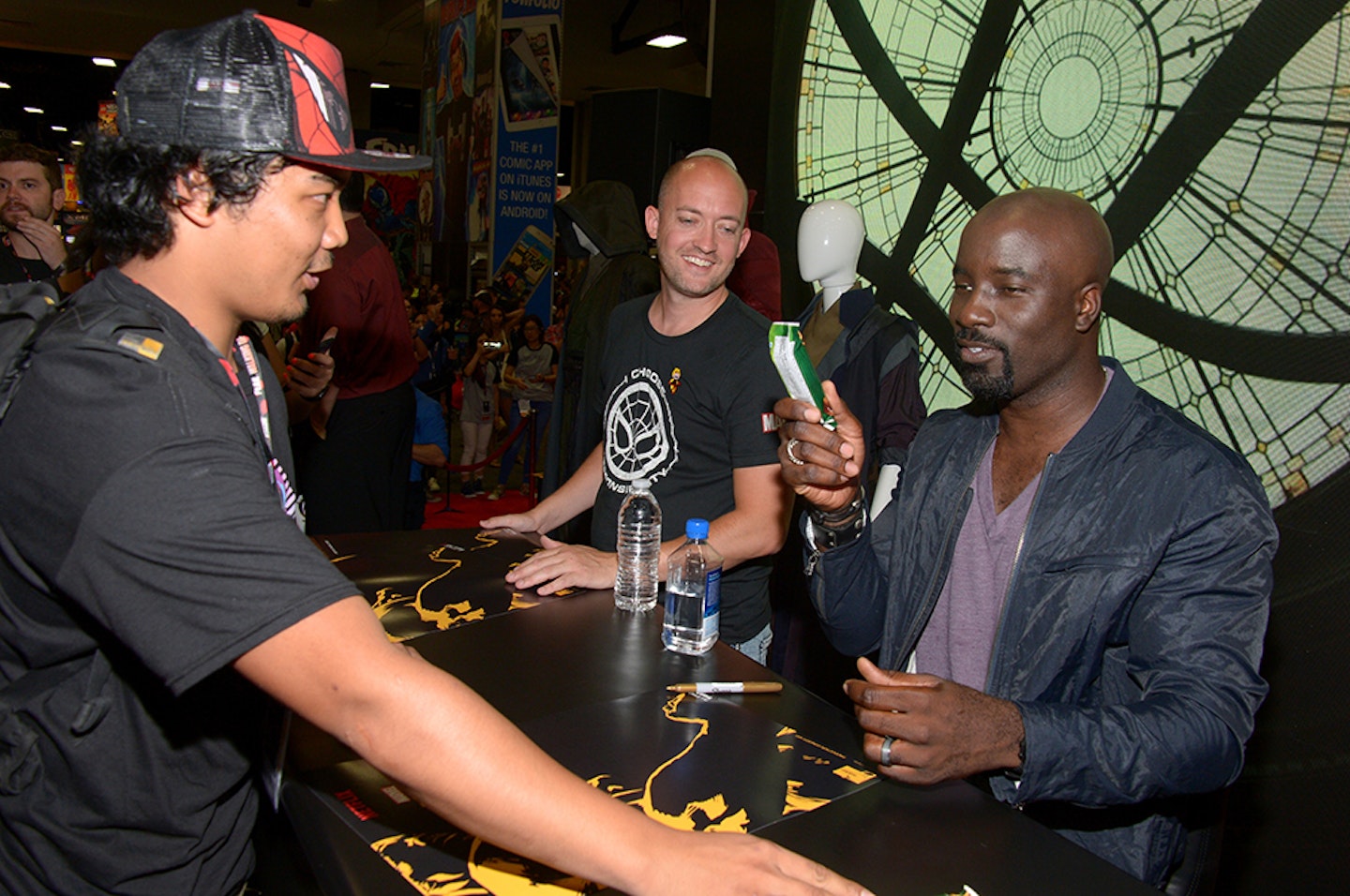
The show leans into race in a fast-driven way that really hasn't been done in the Marvel Universe. There's a fascinating scene in the first episode using the 'N' word. Was there any difficulty in getting that past Marvel?
Coker: Well they had some trepidation. My whole thing was that in using this word, I didn't want it to be comfortable. I wanted every single time that it's heard for people to think about it. I also really wanted the show to live on it's own terms, to the standpoint of, this is what it’s like when you eavesdrop on black people talking to each other. That word at times will come up in certain ways, so I wanted the basics to explore the context with which it was used, because Cottonmouth uses the word definitely. At the same time, come on, every blaxploitation movie from Shaft to Hell Up In Harlem to Black Caesar deals with power and deals with these issues. When all else fails, what does it matter? [laughs]
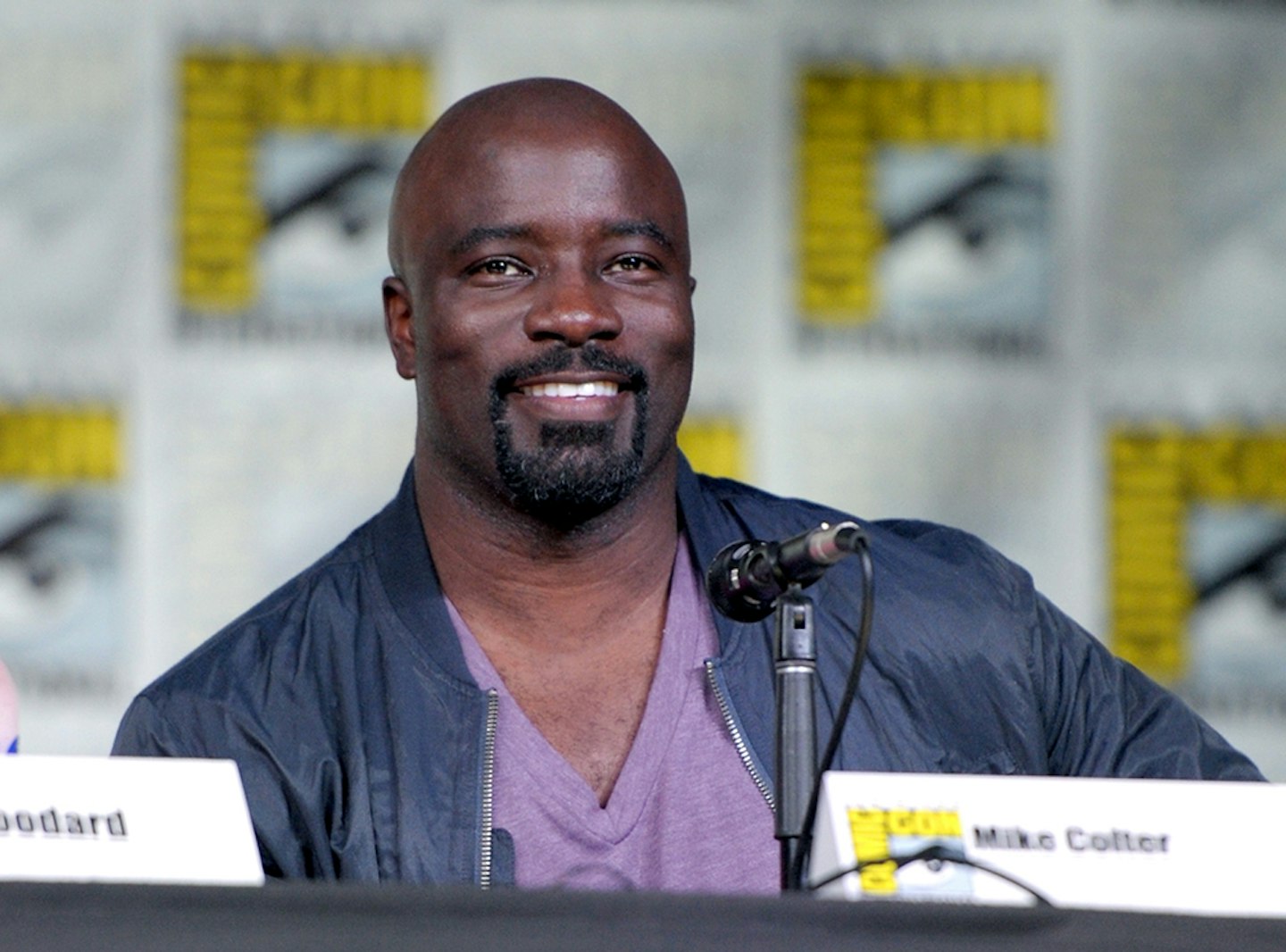
Colter: Speaking about that, I was adamant that Luke was not a person that used that language. He would not use that word because he was bigger than that. First and foremost, we had to define a superhero in a bigger sense other than just his powers. He needs to be someone we can aspire to be. I felt like if he was the kind of guy that used that language all the time, like someone on the street corner who didn't respect themselves or people around him, then he in a sense had lost already. He'd given up.
That was the high requirement, because in this day and age, even as black man, if you don't want to use that word, if you choose not to use that word, it's like you are walking a path on your own almost, because it's so accepted. Whereas for Luke, he wanted to be better than that. He's trying to work on himself, he's trying to change his path, so when he does use it, it resonates, because it's out of frustration. He can't deal with the issue right now. He is going through so much and he has to deal with this guy, this person right now and at this point he wants to unleash and retaliate with the same venom and hatred that he's ... to let him feel ... sometimes you don't know what the effect of a word is until it's used on you. In a real way I think that the frustration just came out. We talked about it on the day we were shooting. Cheo said, “Should we take it out?" and I was, like, “No, I think I am feeling it; it works here in this moment.” I think this is the one time he's going to use it. He uses it for a certain reason and where he is, and I think this works in this moment.
Coker: And that was the thing. You always get the question, "What makes Luke Cage different from every other character?" Well, he's black. Let’s face it, there aren't a lot of black superheroes, and so in dealing with a black superhero you wanted to deal with ugly history and the beauty of history. Yes, he is going to have different kinds of responsibilities and different issues that, say, Captain America wouldn't have to deal with, but then again, it's like he's going to deal with things that every superhero has to deal with. That's the whole thing. At the same time that he has super human abilities, we want to also emphasize on the human, and the frailty of the personality, and the frailty of the temptations and everything else that comes with being a person. That's one thing about the show, everybody from villains to our heroes have these moments of doubt. Have these moments of reflection and clarity. That's one of the main things we really try to do.
Mike, you first played Luke on Jessica Jones. How is it working with a different showrunner?
Colter: I look at it from a standpoint of it's being directed by a different director every episode. As an actor, there is something that people bring to the interpretation. The showrunner for Cage is obviously a black man, and then we have Jessica Jones’ showrunner who is a white female. The point of view of Jessica Jones was told by Jessica. Cage existed through her point of view, so it's through her viewpoint that we experience him and how he interacts with her. So when you examine him closely, we are doing this under the leadership of a black male who is now the showrunner examining this character. Same character, just a turning of the volume or certain colors, certain flavors. He’s in Harlem now. We all act differently in certain places. We don't want to admit it, but we go home and we are different where we grew up than we are when we are with our family, than we are with the guys we went to college with. We just exist differently, because we are different people. It's just different colors coming out, that's all it is.
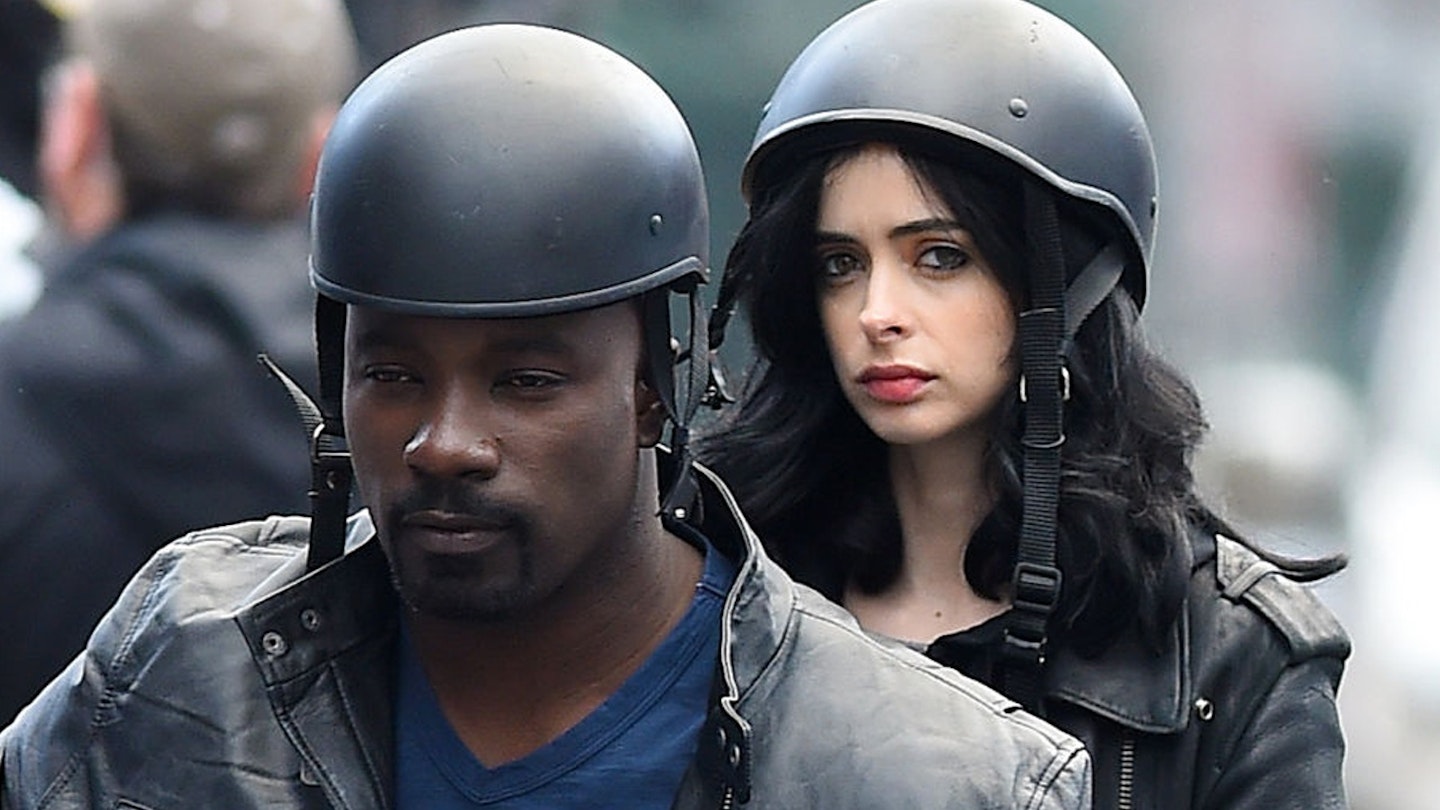
Coker: What's great about Mike is that he literally looks like the character. It’s like he was drawn. At the same time, he also has the sensitivity and so that was the one thing where, yes, we were going to have the brawn and yes we were going to have the grit of Luke Cage, but also I thought it was important that we have somebody that can embody the sensitivity of conversation and of personality. That's the thing. Even though my approach is slightly different, the Luke Cage of Jessica Jones is no stranger to Marvel's Luke Cage. It's really a continuation to an extent. A little different flavor, but it's still the same soup.
